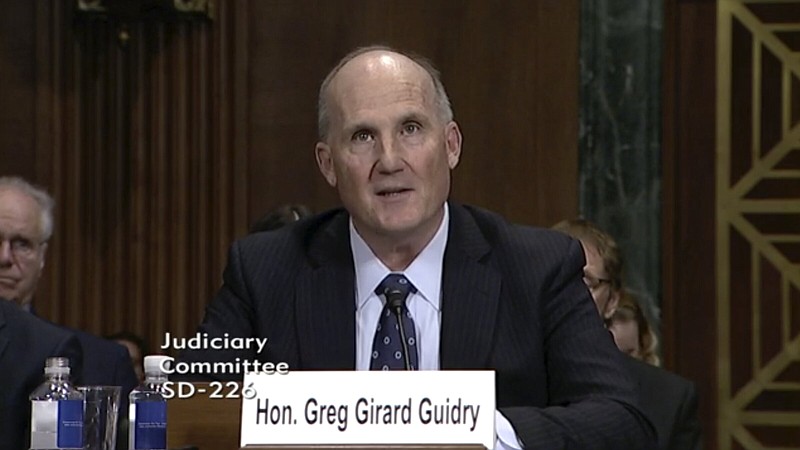A federal judge overseeing the New Orleans Roman Catholic bankruptcy recused himself in a late-night reversal that came a week after an Associated Press report showed that he donated tens of thousands of dollars to the archdiocese and consistently ruled in favor of the church in the case involving nearly 500 clergy sex abuse victims.
U.S. District Judge Greg Guidry initially announced hours after the AP report that he would stay on the case, citing the opinion of fellow federal judges that no "reasonable person" could question his impartiality, but amid mounting pressure and persistent questions, he changed course late Friday.
"I have decided to recuse myself from this matter in order to avoid any possible appearance of personal bias or prejudice," Guidry wrote.
Legal experts say it was the only action to take under the circumstances, citing federal law that calls on judges to step aside in any proceeding in which their "impartiality might reasonably be questioned."
AP's review of campaign finance records showed that Guidry, since being nominated to the federal bench in 2019 by then-President Donald Trump, gave nearly $50,000 to local Catholic charities from leftover political contributions from his decade serving as a Louisiana Supreme Court justice.
Last month, he upheld a $400,000 sanction against Richard Trahant, a veteran attorney for clergy abuse victims who was accused of violating a sweeping confidentiality order when he warned a local principal that his school hired a priest who admitted to sex abuse. He also rebuffed at least one request to unseal secret church documents.
Guidry referred the potential conflict to the Washington-based Committee on Codes of Conduct, which noted that none of the charities he donated to "has been or is an actual party" in the bankruptcy.
It also noted that Guidry's eight years on the board of Catholic Charities ended more than a decade before the bankruptcy and his church contributions amounted to less than 25% of the campaign funds he had available to donate.
"Based upon my certainty that I can be fair and impartial, I have decided not to recuse myself," Guidry told attorneys in the case April 21.
But it was not clear what details Guidry shared with the committee, and he refused to release its advisory opinion. The opinion also raised eyebrows because one of the judges Guidry consulted on the potential conflict, Jennifer Walker Elrod, is scheduled to hear an appeal from the bankruptcy this week for the 5th U.S. Circuit Court of Appeals.
Charles Hall, a spokesman for the Administrative Office of the U.S. Courts, said Guidry had no comment beyond the recusal order.
James Adams, a creditor in the bankruptcy who alleges he was abused by a priest as a fifth grader in 1980, says the judge's recusal was long overdue.
"Like the church, some federal judges will often do the right thing only after the press begins to investigate and question them," he said. "Inflated ego and arrogance can be a dangerous side effect of putting on a black robe."

